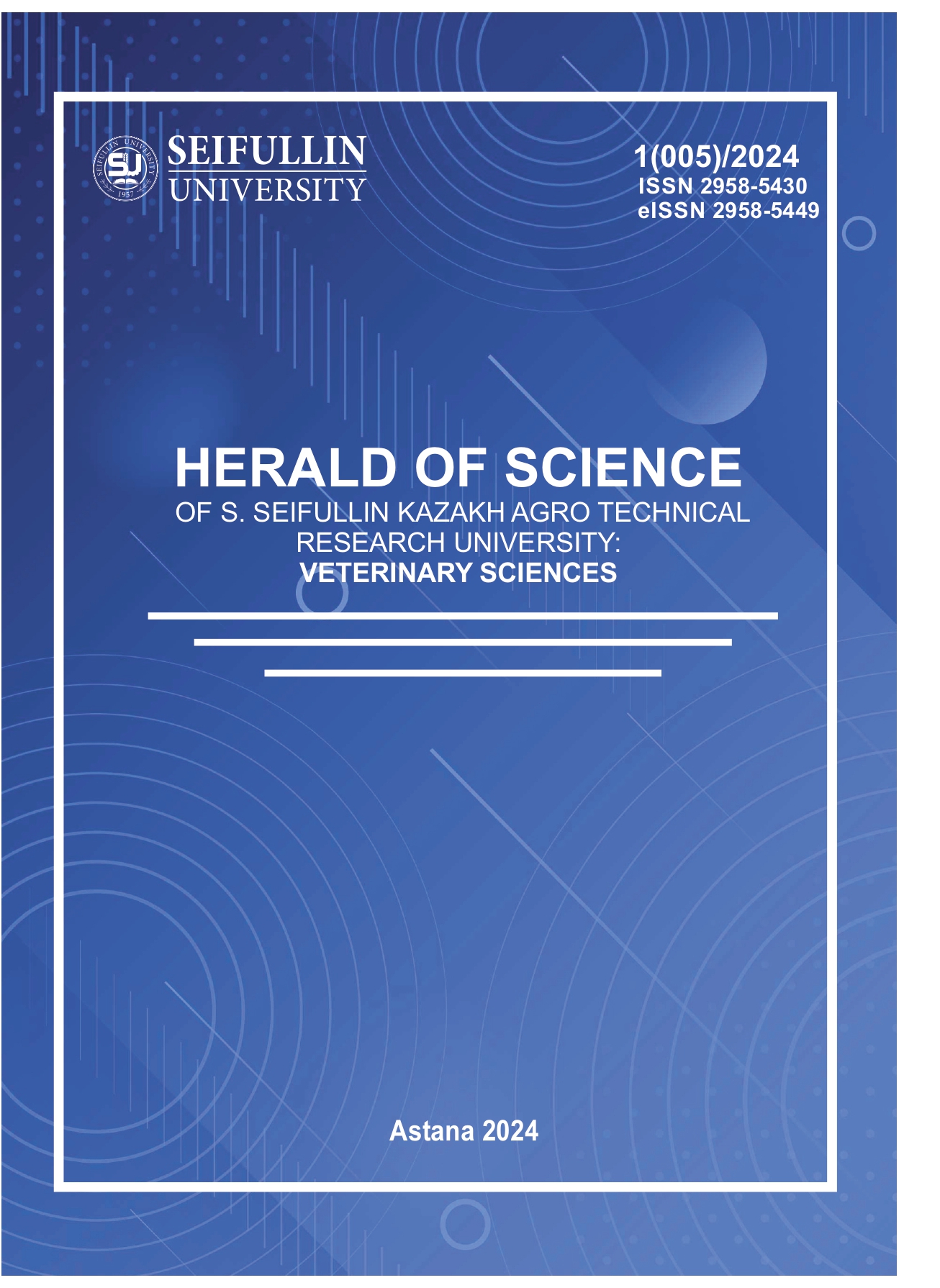USING INDIRECT HEMAGGLUTINATION ASSAY FOR THE DIAGNOSIS OF CATTLE BRUCELLOSIS
DOI:
https://doi.org/10.51452/kazatuvc.2024.1(005).1642Keywords:
brucellosis; diagnostics; milk; traditional serological test; indirect hemagglutination assay; post-vaccination antibody.Abstract
The possibility of using indirect hemagglutination assay (IHA) with milk (IHA/m) to differentiate post-infectious antibodies from post-vaccination ones in cows immunized with the Brucella abortus 82 was studied. Anti-Brucella antibodies by IHA/m were detected in the milk of all lactating animals (n=20) culled on the results of tube agglutination test (AT) and/or complement fixation test (CFT), while the milk ring test (MRT) were negative in 20% of cases. IHA/m, as well as IHA with blood serum (IHA/s), confirmed brucellosis in cows with AT- and/or CFT- negative or questionable results. The correlation coefficient between the results of the two IHA variants was very high (r = 793), and the hemagglutinin titers in the blood serum were significantly higher - 1:760 (+13.3%; -11.7%) than in AT-1:260 (+8.7%; -8.0%) (P≤0.01). Vaccination of cows caused increased production of complementfixing, agglutinating and precipitating antibodies, which tended to weaken during observation of the animals: 30, 60- and 90-days post vaccination (p.v.). By the end of the experiment, all vaccinated animals showed questionable AT; positive RID/O-PS and IHA/s were noted in 10% and 20% of cases, respectively. However, complement-fixing antibodies remained at diagnostic values in all animals until the end of the experiment. Despite the intense antibody immune response to the vaccine injection, there were no Brucella specific agglutinins detected by IHA/m and MRT in the milk of cows even on the 30th day p.v. The results show the need for further study on a large population to determine the diagnostic value of IHA/m for differentiating infected from vaccinated animals.

